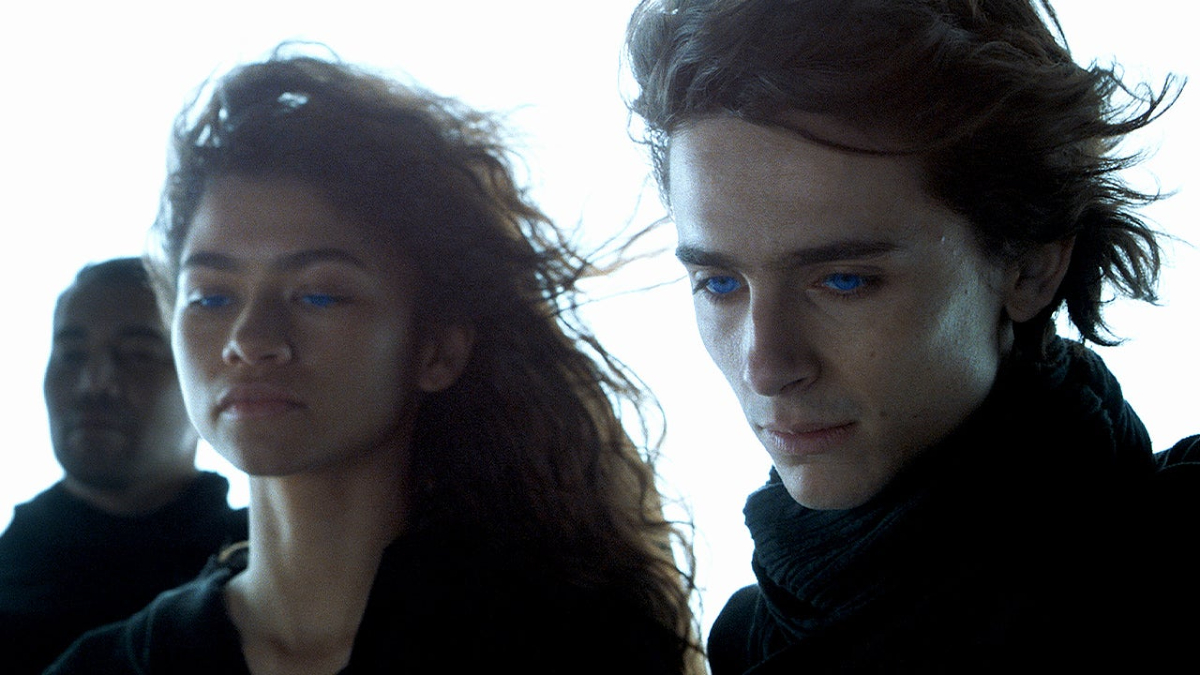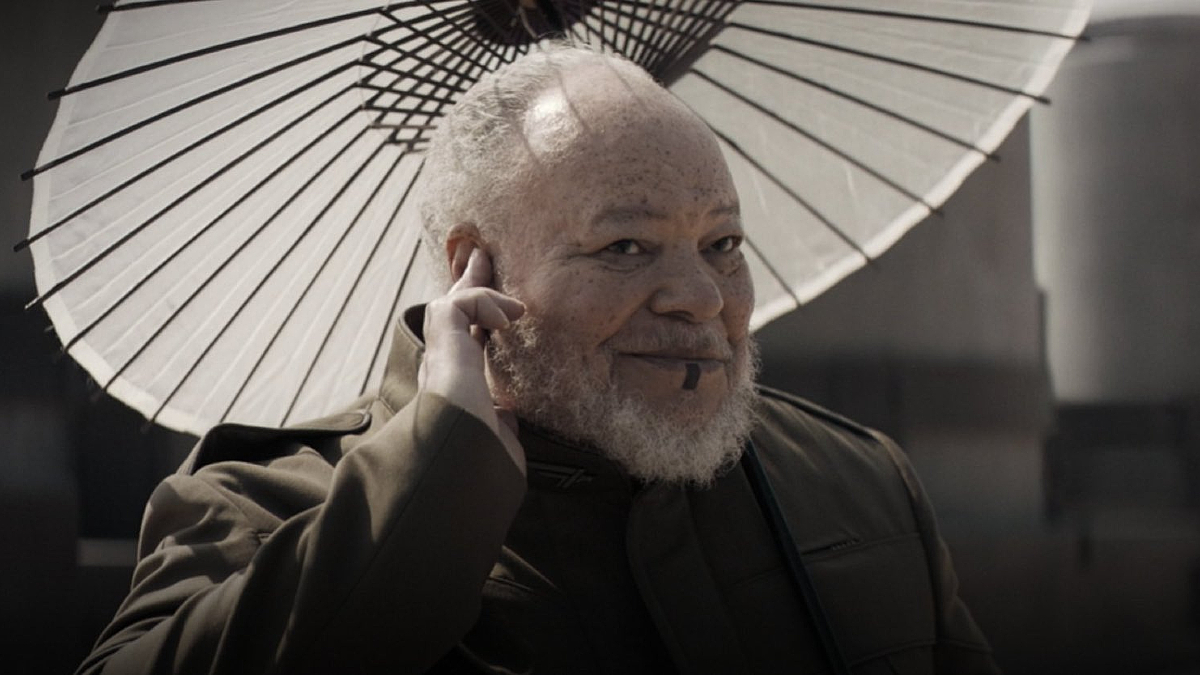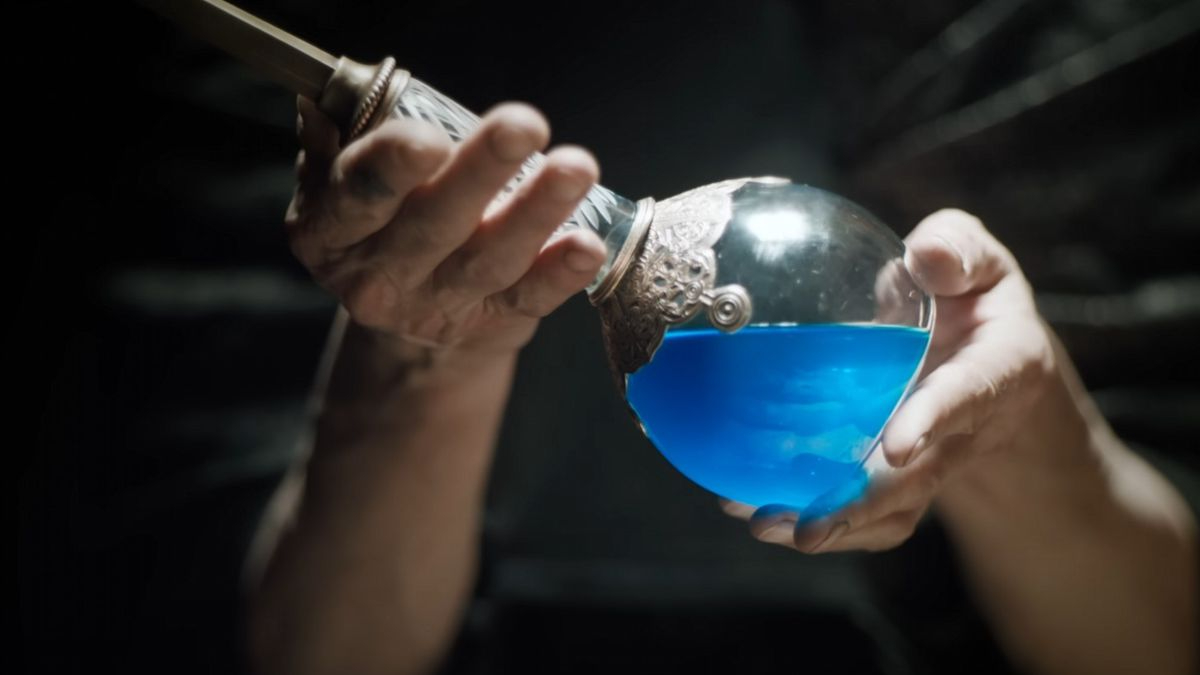All the Ways ‘Dune: Part Two’ Deviates From Frank Herbert’s Sci-Fi Novel

With Dune: Part Two in theaters, those who haven’t read Frank Herbert’s epic sci-fi novel may be curious about the specific ways in which the movie deviates from its source material—and, despite the epic runtime of Denis Villeneuve’s sequel, there are several.
What works on the page doesn’t always work on the screen. In the process of adapting Frank Herbert’s Dune, some things were inevitably lost in translation; others, intentionally so. Villeneuve’s Dune unfolds across two films and nearly six hours, which suggests some degree of faithfulness to the book, but, again, these are very different mediums. The world of Dune is wild, and there are some truly kooky things that wouldn’t work as well in a movie as they do in a book.
Villeneuve’s Dune is still the most faithful and effective adaptation of the 1965 novel where it really matters, bringing Herbert’s ideas and themes—arguably more relevant now than they were 60 years ago—to a new generation of moviegoers across two visually stunning films. 2021’s Dune ends a little past the halfway mark in Herbert’s novel. Dune: Part Two picks up almost immediately where the previous film left off, with Paul Atreides (Timothée Chalamet) and his mother, Jessica (Rebecca Ferguson), embedded with Chani (Zendaya), Stilgar (Javier Bardem), and the Fremen, and evading the fascist Harkonnens who have violently taken over Arrakis.
Chani gets an upgrade
Frank Herbert is ultimately promoting progressive ideas in Dune, warning against the dangers of fascism, organized religion, capitalism, the exploitation of natural resources, and having blind faith in messianic figures. But he arguably falls short when it comes to Chani. In the book, Chani is exceedingly loyal to Paul and believes in the “prophecy” seeded by the Bene Gesserit among the Fremen that Paul is Lisan al-Gaib—the “voice from the outer world,” a messiah from off-world who will become the Fremen’s savior.
Chani is so devoted to Paul in the text that she isn’t bothered when he marries Princess Irulan, daughter of Emperor Shaddam IV, in a move to legitimize his political power. In fact, Chani happily becomes Paul’s concubine—an officially sanctioned mistress who enjoys all the respect and privileges afforded a wife in everything but name. In the book, Chani and Paul have a baby named Leto II (after Paul’s father), who is killed by invading Sardaukar.
In Dune: Part Two, Chani doesn’t buy the Lisan al-Gaib narrative and believes prophecies are just another way for oppressors to maintain control. She’s not wrong, of course, but she falls in love with Paul anyway. She spends much of the film trying to reconcile this version of Paul with the messiah version that more and more of her people start believing in. By giving Chani more autonomy and depicting her as an equal among the Fremen fighters, Villeneuve makes her more interesting while underlining the idea that Paul is not a savior and laying the groundwork for Dune Messiah.

Where the hell is Thufir?
Our favorite supporting character, played in Dune by Stephen McKinley Henderson with the cutest little umbrella you ever did see, is completely absent from Dune: Part Two. Villeneuve confirmed to Entertainment Weekly that he cut Thufir Hawat from the film, explaining that he thought of the sequel as more of a “Bene Gesserit adaptation,” which meant that he needed to drop the Mentat—the living computers assigned to assist each house.
Many have speculated that this is probably why Tim Blake Nelson’s part was cut from Dune: Part Two. Speaking with MovieWeb, the actor wouldn’t reveal what his role was in the sequel, but given Villeneuve’s elimination of the Mentat, it’s possible that Nelson was playing Count Fenring, advisor to Emperor Shaddam IV (Christopher Walken) and husband of Lady Margot Fenring (Léa Seydoux). In the Dune novel, Count Fenring is a skilled assassin and Mentat who serves House Corrino and is ordered to kill Paul by the emperor.
As for Thufir Hawat, in the book he survives the Harkonnens’ hostile takeover of Arrakis, during which nearly every member of House Atreides is killed. Forced to work for Baron Harkonnen, Thufir learns that the storied Muad’Dib is actually Paul and does his best to mislead the Harkonnens. Thufir is killed when Baron Harkonnen orders him to murder Paul and he refuses.
Gurney’s revenge
One change that will leave book readers satisfied relates to Gurney Halleck (Josh Brolin), the War Master for House Atreides and mentor to Paul. Dune is faithful to Gurney’s backstory: His wife and family were murdered by Glossu Rabban Harkonnen (Dave Bautista), who left Gurney with a gnarly facial scar. In the book, Glossu Rabban is ultimately killed by the Fremen, which is still pretty satisfying, but Dune: Part Two indulges Gurney’s desire for revenge. When the cowardly Glossu Rabban tries to flee Arrakis following Paul’s murder of Baron Harkonnen and his imminent takeover, he runs into Gurney, who wastes no time in killing the man who took his family.

Alia’s role is … different
As with the book, Lady Jessica discovers that she’s pregnant while living among the Fremen, who just so happen to be in the market for a new Reverend Mother. In order to become Reverend Mother, Jessica must observe the Fremen ritual of drinking the Water of Life—i.e., spice-heavy bile extracted from baby sandworms after drowning them in a pool. Upon drinking the Water of Life, Jessica inherits the memories of all her female ancestors. This is how she learns that she is actually Baron Harkonnen’s daughter, taken from him at birth by the Bene Gesserit.
Her unborn child, Alia, is exposed to the Water of Life and also receives all of her ancestral memories. The Bene Gesserit have strict rules concerning such rituals—an unborn child shouldn’t be exposed to ancestral memory because they have yet to develop personality of their own and are more vulnerable to being influenced by the countless personalities within these memories. In the Dune novel, Alia is “pre-born,” meaning she comes into the world with a full adult consciousness. And it is a four-year-old Alia, not Paul, who kills Baron Harkonnen.
By the end of Dune: Part Two, which unfolds over a shorter time period (months compared to a few years in the book), Jessica is still pregnant with Alia. Thanks to the Water of Life ritual, Alia has received ancestral memories (both male and female, which is unheard of, by the way) and is able to communicate with Jessica in utero—resulting in some hilariously deranged scenes of space-witch Jessica pacing around, whispering to her belly, and acting as go-between for Alia and Paul. Later in the film, Paul has a dream in which he meets an adult Alia (Anya Taylor-Joy), who issues a dire warning to her brother about the future. We also hear Alia speaking to Jessica at the end of the movie.
Paul’s arc is clearer
Herbert was motivated to write his sequel, Dune Messiah, after realizing that readers had clearly drank the sandworm juice and believed that Paul was a savior. As previously mentioned, in Herbert’s Dune, even Chani believes the prophecy and supports Paul throughout. Another difference between the two versions is that, in the book, the Fremen are not divided into northern and southern factions. The invention of the fundamentalist sect in the movie allows Chani to be skeptical and affirms that Paul is not an unimpeachable savior.
In the first half of Dune: Part Two, Paul rejects the Lisan al-Gaib prophecy; he agrees with Chani and the more progressive Fremen that the prophecy is just a myth planted by the Bene Gesserit. Both the book and the film make clear that the sisterhood has spent centuries seeding such prophecies in various places and contriving to bring about the birth of a chosen one, but Paul is not the only “savior” they’ve engineered through careful breeding. That’s how we meet Feyd-Rautha (Austin Butler), Baron Harkonnen’s demented nephew and a potential replacement for Emperor Shaddam IV.
During the second half of Dune: Part Two, Chani is repulsed by Paul, who doesn’t do a great job of making it clear that he’s only going to play pretend messiah so that he can unite the Fremen and regain control of Arrakis. And then Paul gets high on his own supply by drinking the Water of Life and inheriting the genetic memory of his male ancestors. It becomes evident pretty quickly that Paul is no longer performing the role of Lisan al-Gaib; he believes it.

How it ends
The biggest difference between the ending of Frank Herbert’s novel and Dune: Part Two concerns Chani. In the book, she remains loyal to Paul no matter what. In the movie, as Paul becomes more committed to fulfilling his role as a savior, Chani puts more distance between them, doubling down on her vow to fight for the Fremen—not for Paul. At the end, after Paul defeats Feyd-Rautha (more on that below) and proposes a politically beneficial marriage to Princess Irulan, Chani leaves Arrakeen, calls a sandworm, and gets the hell out of there. Good for her.
As for the Feyd-Rautha fight, this is also a little different in Herbert’s novel. Paul and his cousin use poisoned blades in their battle over the emperor’s throne, and Paul wins when he—and I cannot stress this enough—stabs Feyd-Rautha under his chin, plunging the knife all the way up into his extremely round skull and into his brain. In Dune: Part Two, the fight is a bit more climactic; Paul is stabbed, but ultimately kills Feyd-Rautha.
With his inherited atomic weapons, Paul threatens to destroy the valuable spice fields of Arrakis if the Great Houses interfere with his plans. Unlike Herbert’s novel, in which the houses let Paul become Emperor and go about his business, the movie ends with the Great Houses refusing to acknowledge Paul as Emperor. This makes a bit more sense for the narrative Villeneuve is building toward in Dune Messiah, which makes good on Paul’s vision of a holy war being waged in his name.
(featured image: Warner Bros.)
Have a tip we should know? [email protected]
